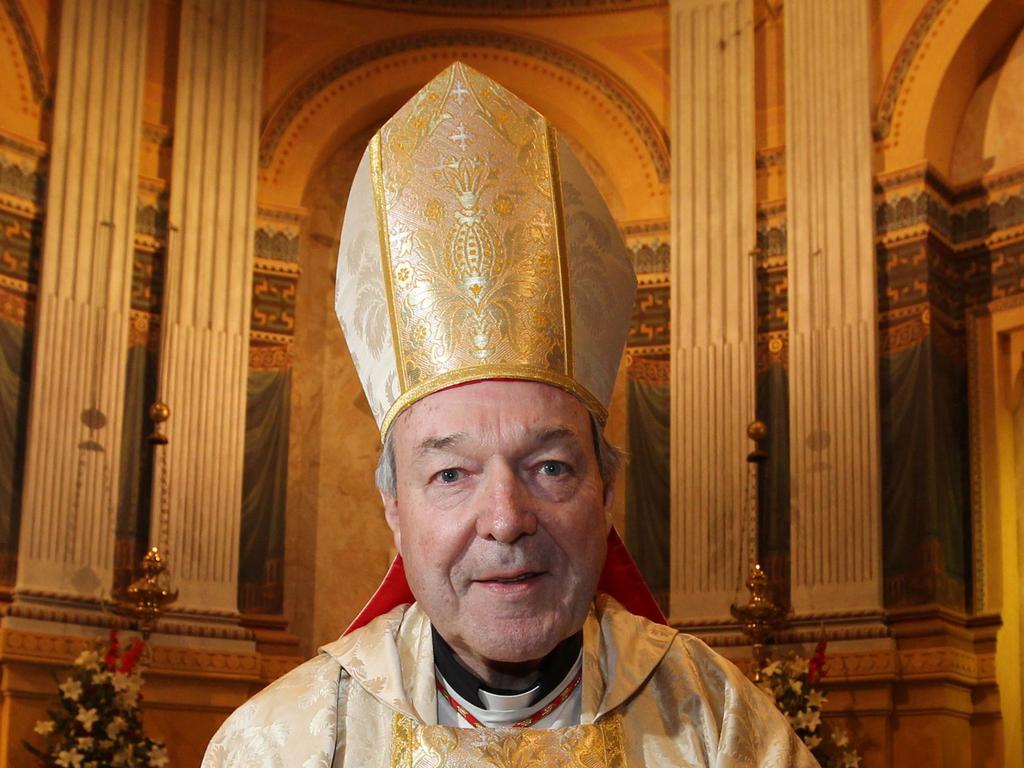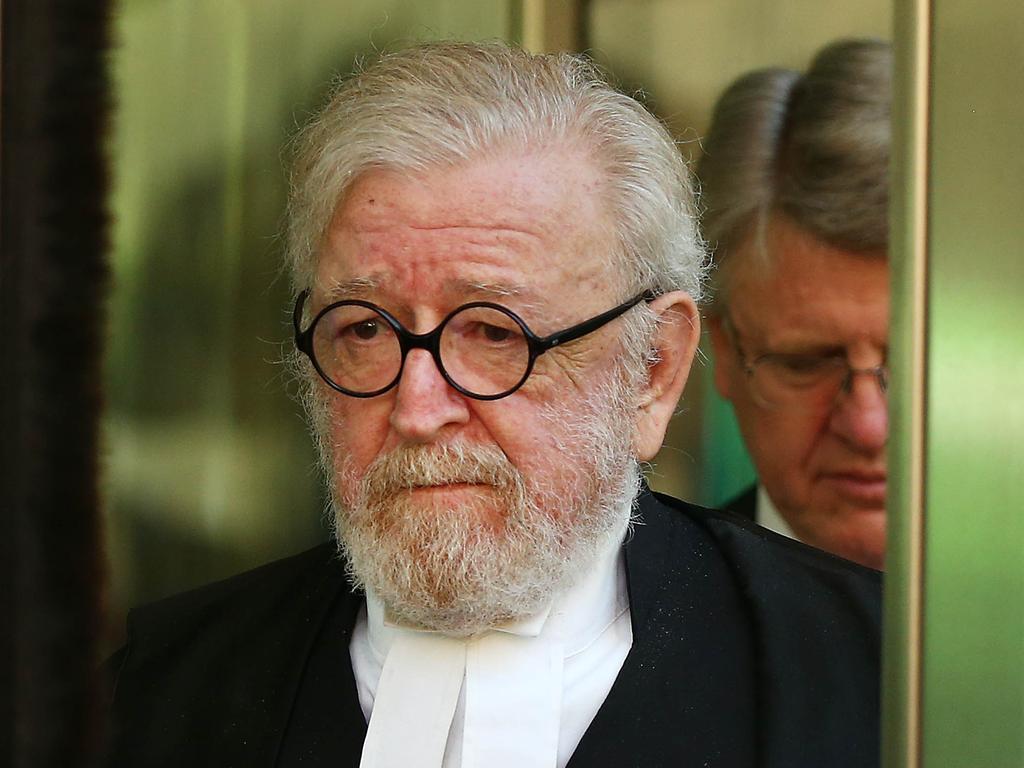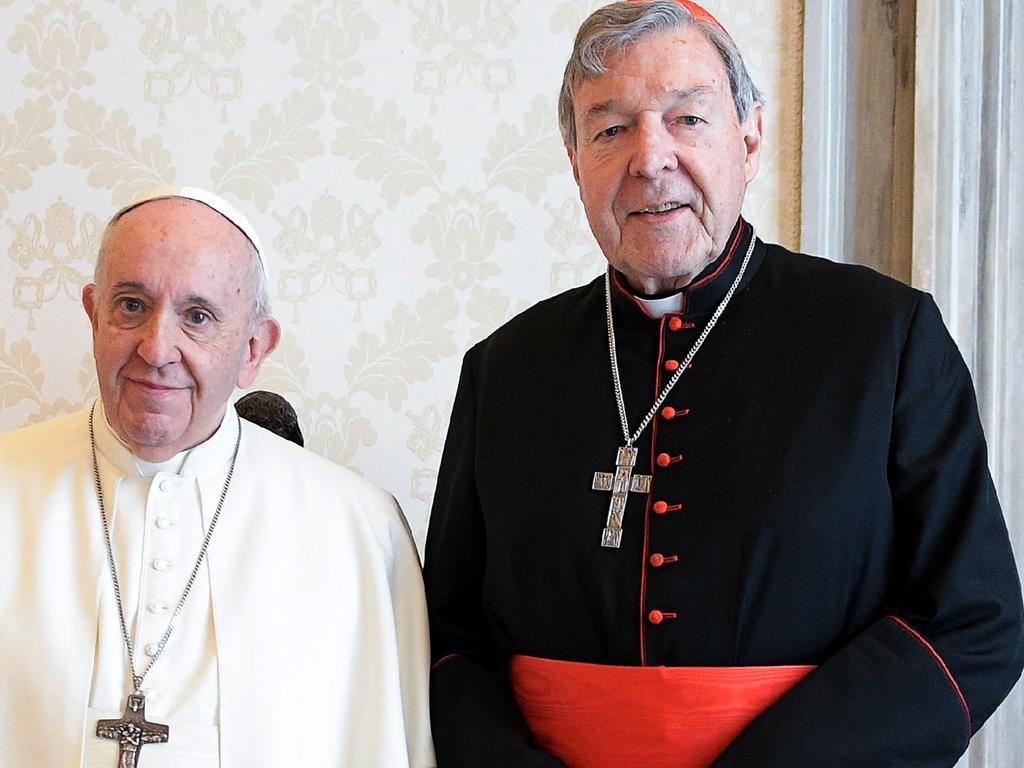George Pell gives Francis’s papacy a kicking
George Pell secretly wrote to cardinals ridiculing Pope Francis’s tenure as a ‘disaster’, claiming the Vatican had lost millions through corruption.

Before he died, Cardinal George Pell called for the next pope to restore doctrinal clarity in faith and morals in an astonishing secret memo that was scathing of the “catastrophic” and “disastrous” papacy of Pope Francis.
The 2000-word document, which was distributed to cardinals anonymously last Lent, spelt out how bad he believed the situation was under Francis, not only outlining moral and financial failings, but alleging Francis used his papal powers to interfere in the Vatican’s judicial processes.
Cardinal Pell was posthumously outed as the author, according to his wishes, by the respected Vatican blogger Sandro Magister on Thursday, underscoring that Cardinal Pell’s return to Rome after his sex abuse convictions were quashed by the High Court may have been more about salvaging the church’s doctrinal reputation rather than his own.
He said that under Francis, “Christ is being moved from the centre” and “the Christo-centric legacy of St John Paul II in faith and morals is under systematic attack”.
“The new pope must understand that the secret of Christian and Catholic vitality comes from fidelity to Christ’s teachings and Catholic practices. It doesn’t come from adjusting to the world or from money,” he wrote.
“The first tasks of the new pope will be the restoration of normality, the restoration of doctrinal clarity in faith and morals, the restoration of proper respect for law and the guarantee that the first criterion for the appointment of bishops is the acceptance of apostolic tradition.”
Cardinal Pell’s year in solitary confinement meant his “martyrdom” stocks rose high among very senior statesman of the church, insiders say.
He was helping a faction of cardinals to promote a conservative line of the Catholic faith for when the physically ailing Pope Francis, who openly struggled at the funeral of Pope Emeritus Benedict XVI, either retires like his predecessor, or dies.
The harsh criticisms contained in the cardinal’s document, as well as his public takedown of Francis penned in The Spectator magazine released hours after his death, now pose a conundrum for the Pope who will preside over Cardinal Pell’s funeral at St Peter’s Basilica on Saturday.
The Weekend Australian learnt on Friday night that because the Pope had a conflicting prior appointment he would be “popping in at the end” of the funeral scheduled for 11.30am Rome time, or 9.30pm AEDT, to give the valediction.
While several Australian government officials are in Rome to take Cardinal Pell’s body home, not many are expected for the funeral.
Insiders suggest Francis would have known of Cardinal Pell’s dissatisfaction with his leadership because the Australian’s blunt manner would not have restrained him.
And Francis may have known Cardinal Pell was behind the document because of its detailed revelations about the “serious” state of Vatican finances: losses of up to €35m ($54m) a year for the past three years; a pension fund deficit projected to be €800m by 2030; and the “shockingly low” yield on 5261 Vatican properties, averaging just €2900 a year each in 2020.
Cardinal Pell had been appointed by Francis in 2014 to oversee reform of the Vatican finances, but he came up against internal resistance including for outside oversight of some processes.
Francis’s supporters – of which Cardinal Pell claims are few for “commentators of every school, if for different reasons … agree that this pontificate is a disaster in many or most respects; a catastrophe” – may regard his secret writings as a form of treachery. Others say his straight writing is stimulating debate at a crucial time for the church as it suffers declining numbers.
Cardinal Pell listed “grave failures” by the papacy to support human rights in Venezuela, Hong Kong, mainland China and the Russian invasion of Ukraine.
The cardinal’s memo also highlights how Francis’s position had changed over the years, from strongly supporting reforms to opposing them, and it calls for the next pope to reverse doctrinal authority given to national or continental synods to recapture the faithful.
“Unless there is a Roman correction of such heresies, the Church would be reduced to a loose federation of local Churches, with different visions, probably closer to an Anglican or Protestant model than an Orthodox model,’’ he warned.
He also highlighted substantial changes made to church leadership since 2013.








To join the conversation, please log in. Don't have an account? Register
Join the conversation, you are commenting as Logout